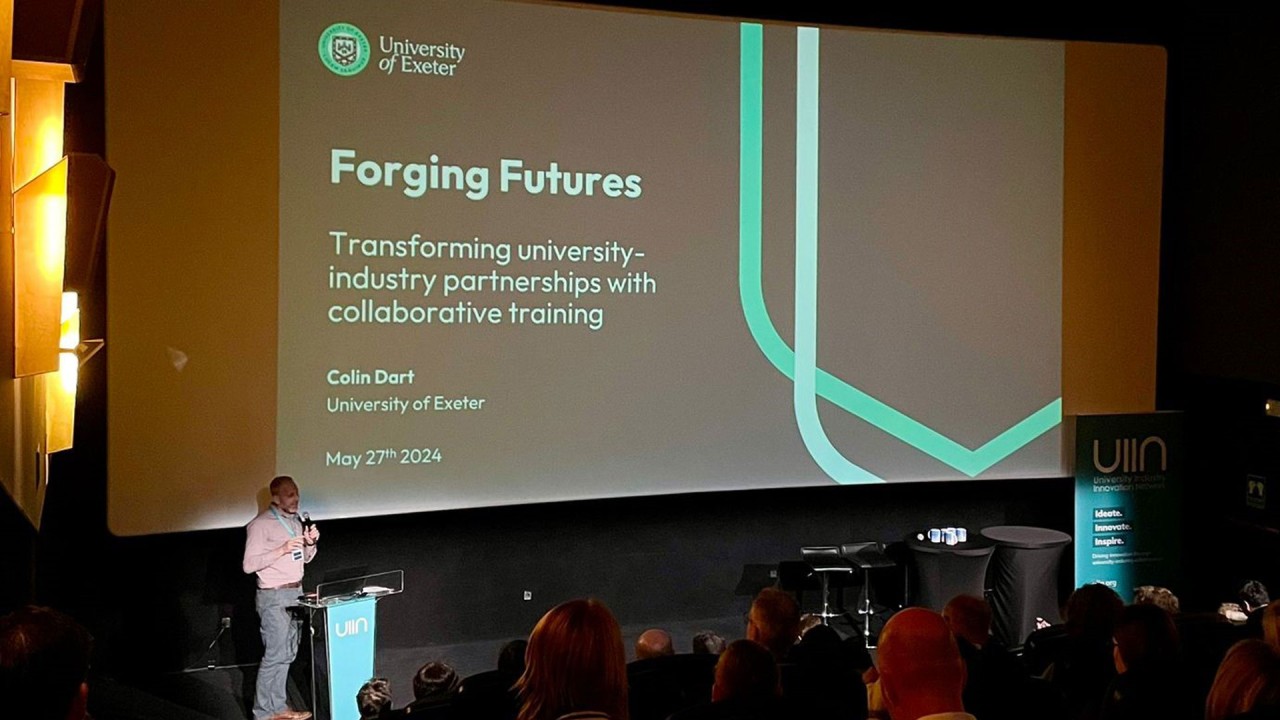SEARCH
Enter your search term below:
Close
Enter your search term below:

WORLD LEADING BUSINESS SUPPORT

I, alongside fellow colleagues from across the SETsquared Partnership, attended, ready to absorb the knowledge, insights and connections presented from all four corners of the globe. The conference is the largest global event dedicated to fostering university-industry interaction, entrepreneurial activities and the future of education.
This year’s theme focused on the move towards strategic and mutually beneficial partnerships between universities and industries, recognising the significance of research valorisation, the growing global competition for talent, and key trends in innovation, sustainability, and future skills.
In short, everything that we across the SETsquared Partnership strive to achieve.
One common theme throughout the conference focused on how we measure the value of university activities. We all know the line that universities have to tread. We have an obligation not only to our immediate student body but also to other stakeholders in the ecosystem and the funders who enable research activities to take place. So, how do we demonstrate our value? Is it through GVA figures, university league tables and the number of spinouts created each year, or is it, or more importantly should it be, much simpler than that? Perhaps, the real value of university activity comes from innovations which boast the power to transform our lives and the world we live in for the better.
This is something that Siobain Hone, Enterprise Education Manager at the University of Bath and Emily Davies, Head of Student Entrepreneurship at the University of Exeter, touched on in their presentation. Focusing on the SETsquared Student Enterprise Practice Group, it is a first-hand example of how collaboration has the power to leverage more than just resources for our students, innovators and researchers.
Through shared best practice, the pooling of talent, and amplified access to resources and knowledge from across our ecosystem, we are undeniably stronger together than the sum of our parts.
I was thrilled to have the opportunity to present my ideas regarding the importance of collaborative training between industry and university, and how it creates more fertile ground for research commercialisation. Last year, we at the University of Exeter led the inaugural Corporate Innovation Discovery Studio – a new initiative delivering systemic thinking training and problem-definition activities. Through this two-day journey, our commercial partner in the programme, South West Water, now has a deeper understanding of the institution’s processes, fostering a greater appreciation of its potential contribution and opportunities for further collaboration in the future.
The power of collaboration was echoed throughout presentations across the three days. This can only happen if industry and educators continue to collaborate effectively, making sure that knowledge creation is made available to the wider world so that everyone can benefit. Whilst there are too many to name, a handful really caught my attention in showcasing how other institutions around the world are exercising partnerships to offer more to their communities.
Dún Laoghaire Institute of Art, Design and Technology, Dublin, presented its plan to build numerous accelerator programmes for the creative arts, highlighting that nurturing an entrepreneurial mindset, empowering venture creation, and enabling rapid growth, remain key principles despite the change in discipline.
Ingela Lindahl of Linköping University, Sweden, stressed the importance of challenge-based learning when designing entrepreneurial programmes. This framework holds the key to both academic and corporate engagement if we are to deliver a cleaner, fairer future – after all, what are we working towards if it’s not to address the world’s greatest challenges?
Meanwhile, Ed Holroyd Pearce, Virtual Internships, and Elsa Zenatti-Daniels, Aston Business School, presented their ideas on the benefits of borderless collaborations. For new and soon-to-be graduates, “enduring human capabilities”, as they so well phrased it, are a key shield in their armoury.
The opportunity for students to undertake internships across geographic and industry boundaries holds huge possibilities, and institutions must actively do more to make this happen. It provides an unparalleled opportunity to experience, learn and evidence these enduring human capabilities – the same qualities which will place them in the best stead to make real, actionable change.
Entrepreneurship education enables us to educate and empower people to harness their skills and knowledge to create positive change and impact. Alongside the top-level requirements of imagination, resilience and creativity, it also requires empathy, curiosity and collaboration. It needs artists, scientists and engineers and it’s for that reason that its value should be measured in far more than just economic capital.
For a compact, three-day event, The University Industry Innovation Network Conference offered insights that will be transformative for all who attended. I was honoured to be awarded for my presentation in the External Collaboration & Partnerships category, and grateful for the opportunity to share what we’ve been building with like-minded practitioners from around the world.
Thank you to the UIIN for inviting us along and allowing us to offer our two cents on the vital need for systematic approaches to build impactful partnerships – something that becomes more important each and every day as we strive to build a greener, healthier, and fairer planet.
Get all the fresh insights first! Stay up-to-date with all the
latest investment news, blogs and all things SETsquared.
Close
Close